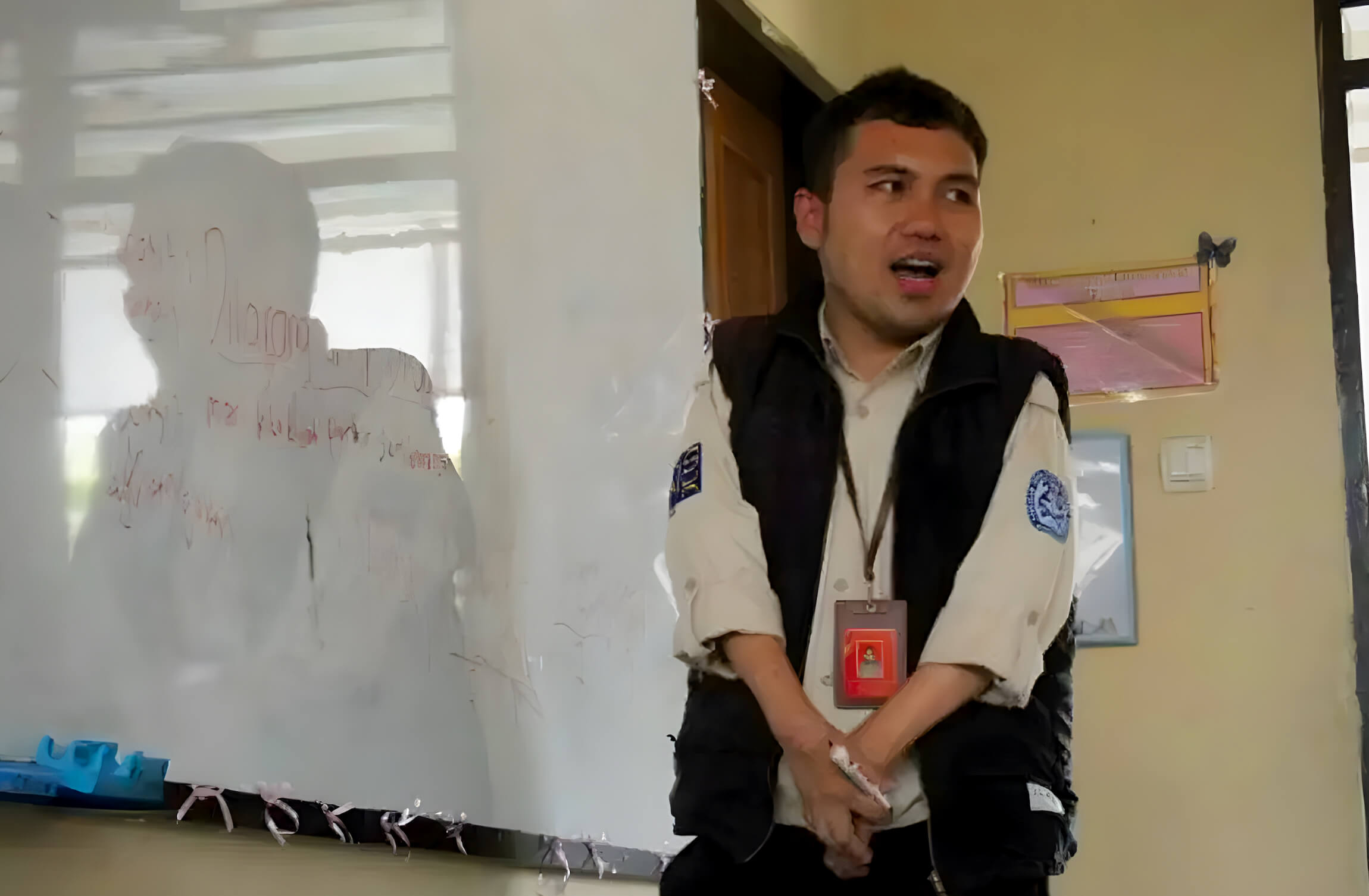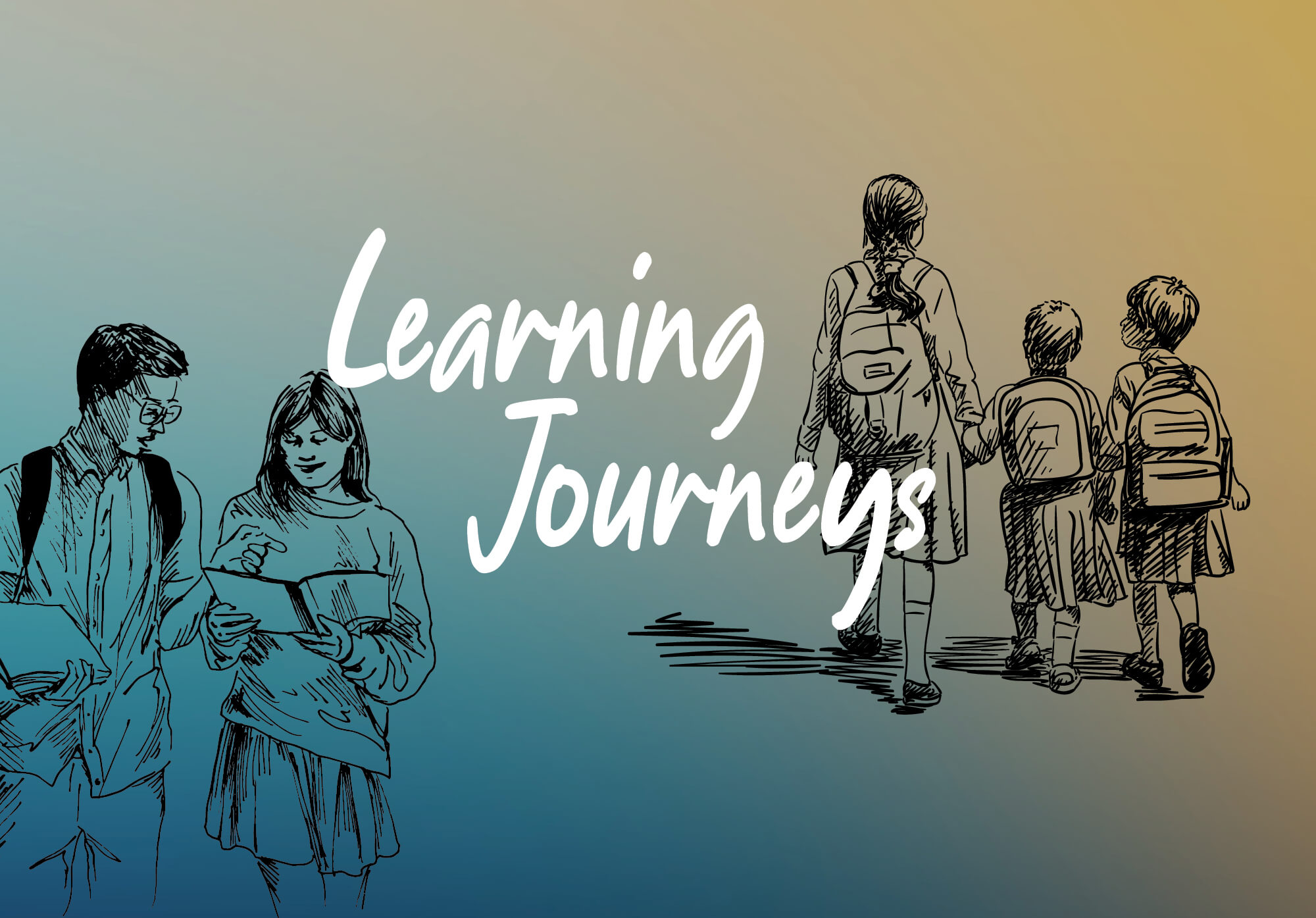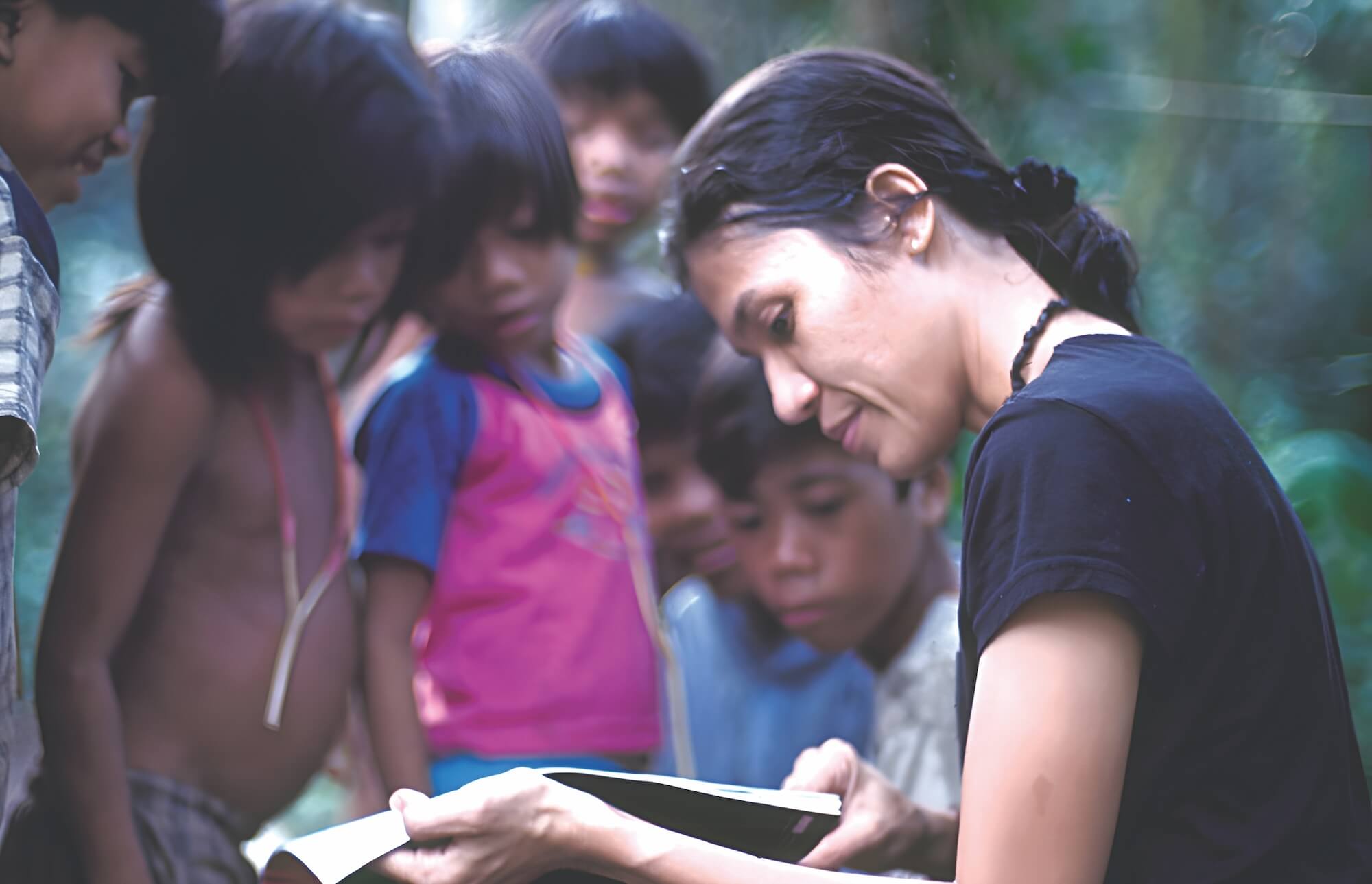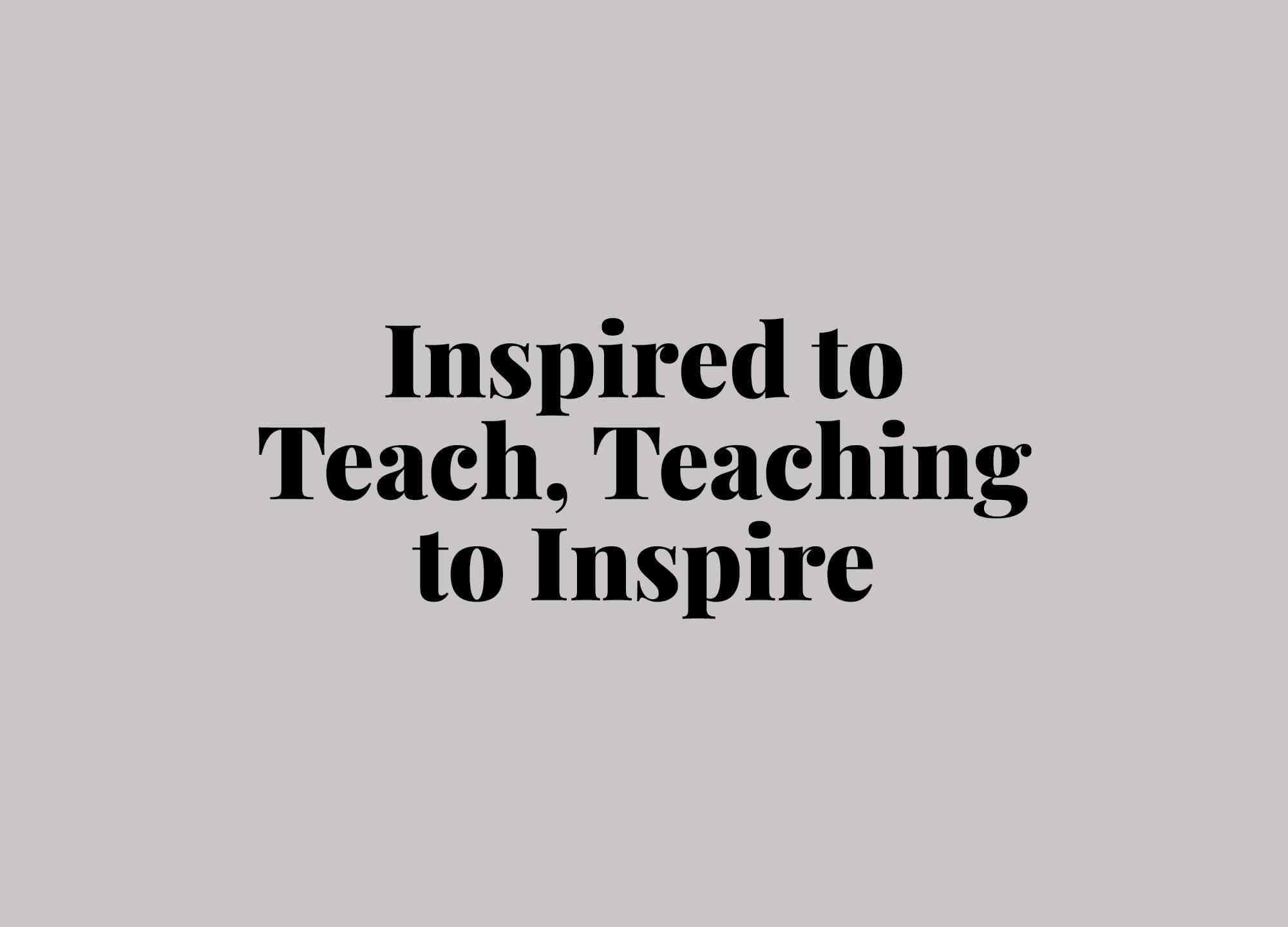



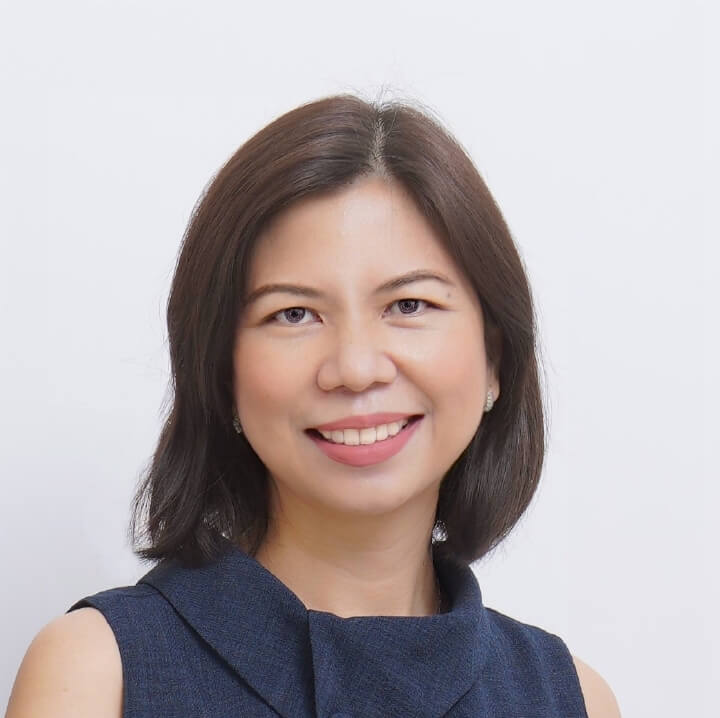
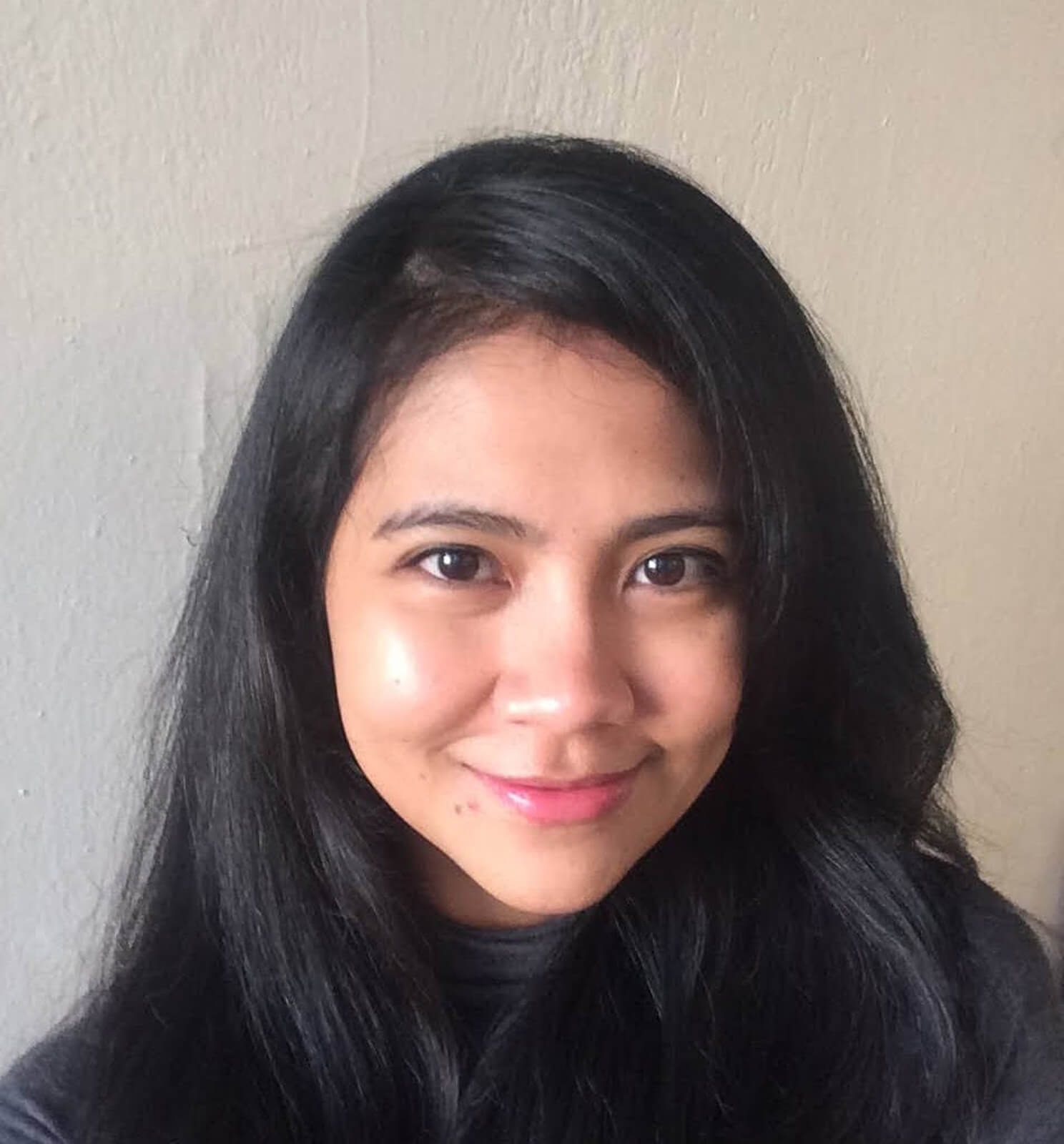
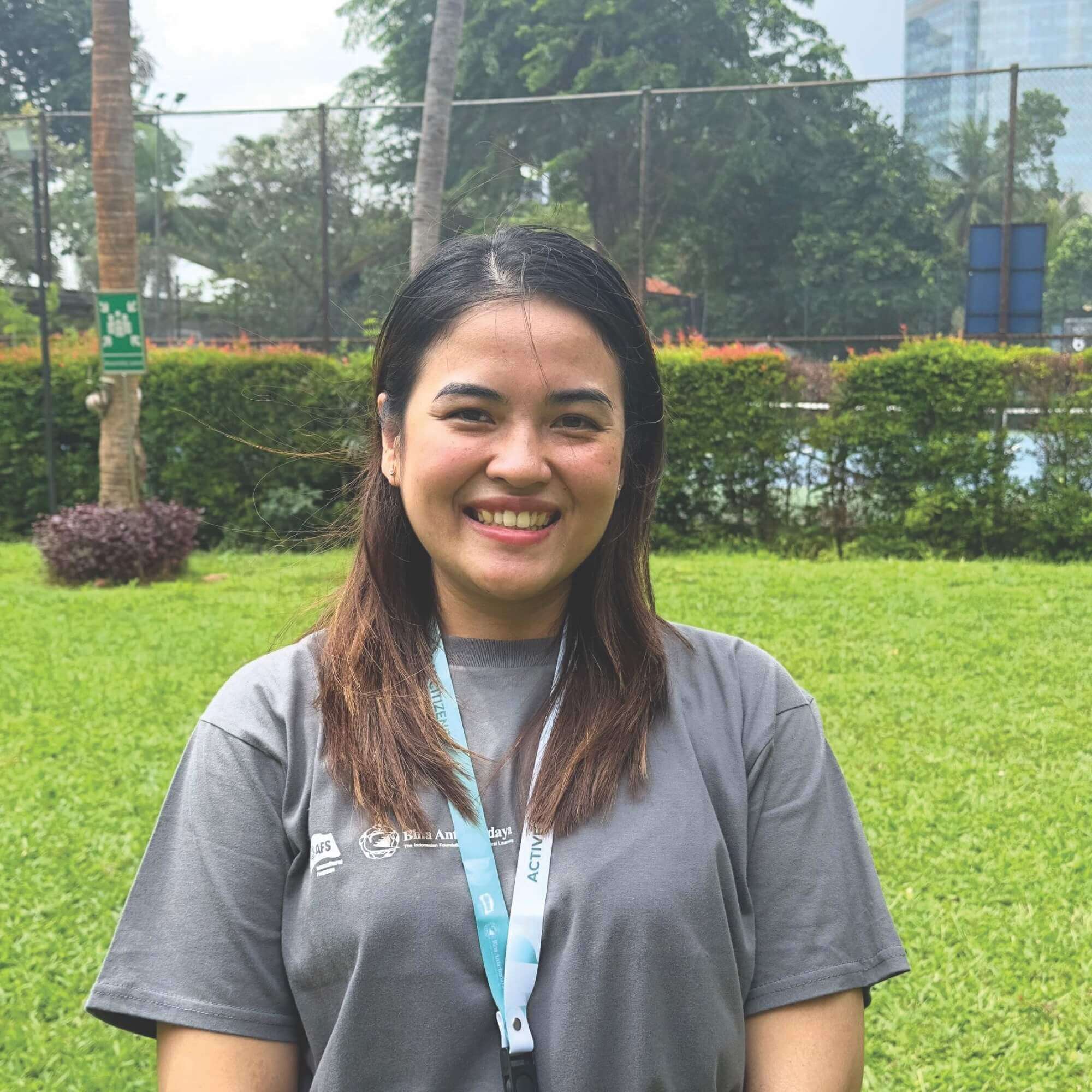
Alma Anderson
Primary School Teacher and School Nurse
Quezon City, Philippines
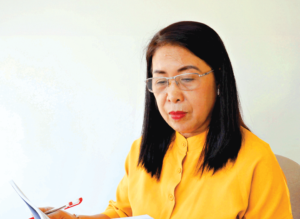
Alma Anderson was born into a family of educators. In her youth, she witnessed her parents’ dedication to teaching and helping the young, igniting a similar passion within her. She has spent the last 30 years teaching Filipino and Araling Panlipunan (Social Studies) at a public elementary school.
“I love teaching, especially when I see my students’ eagerness to learn. I like the subjects I teach because I want my students to learn about our culture, belief systems, and traditions, and I want them to speak and write properly as Filipino citizens.”
Alma’s interest in the medical field led her to pursue a nursing degree while teaching full-time. Shortly after passing the board exam in 2012, Alma assumed another role—as the school nurse. The dual roles have kept her doubly busy but equally fulfilled.
Alma says the COVID-19 pandemic lockdown was extremely tough for teachers, students, and their parents, especially since her school community is economically disadvantaged.
She relates that during the lockdown, the school implemented blended learning, or a combination of online learning and learning through the use of printed modules. She notes, “There were children who were unable to keep up with the lessons because they had no gadgets to use, did not have mobile credits or internet connection.”
“The distribution of modules also posed a problem for us. A lot of parents failed to collect the modules from the school. Some parents asked, ‘we have to earn a living, so why should we prioritise the modules or spend so much time helping our kids with schoolwork?’”
When face-to-face classes resumed, Alma says the learning loss was palpable. “We (teachers) struggled a lot since many of our students were not able to read or write. We tried to help them as much as we could. But as you know, educating children is a partnership between the parents and teachers. Parents also have to supervise their children’s learning at home.”
Alma is glad that the Philippine Department of Education introduced “Catch up Friday,” a programme to help children who had fallen behind in their studies and cultivate in them the habit of reading.
Alma observes that as the country returns to normalcy, it still needs to address pre-pandemic issues, such as the need for additional classrooms, improved facilities, and more teachers to accommodate the high enrolment rates in public schools. She emphasises, “To achieve quality education, we must secure adequate funding for school improvements.”
Additionally, she highlights the necessity for public schools to keep pace with new technologies to remain competitive globally. “We should prioritise digital literacy skills for students. We should ensure that both teachers and students have access to digital technologies and the necessary training. And our schools should have a stable Internet connection.”
At the regional level, Alma says ASEAN can help by facilitating the exchange of knowledge. “As an educator, I will benefit from the sharing of experiences, ideas, and best practices, especially in terms of innovative teaching methods, through regional conferences, workshops, and professional development programmes.”
Mac Thi Thanh Binh
Junior High School Teacher
Hanoi, Viet Nam

Mac Thi Thanh Binh, who prefers to be called “Peace,” is a seasoned school teacher from Hanoi, Viet Nam. She has 35 years of teaching experience and specialises in Home Economics and English. Peace has taught different grade levels during her career, with the majority of her pupils in Grades 6 and 7, as well as 8 and 9.
“I love children very much. I want to give them a way to improve their personality and skills,” she tells The ASEAN.
In addition to teaching skills, Peace says the school also aims to build the children’s core values. “I break down the goals [that students need] to achieve for each school year. For example, they have to improve on three core values: morality, wisdom, and effort. My teaching method is all about how to help students grow in these areas.” She adds, ”Along with teaching knowledge to students, one of the things I focus most on is developing students’ emotional intelligence. Every day, my students and I discuss how to observe and identify emotions, how to control negative emotions, and develop positive emotions. When students have these skills, they will easily achieve success in everything.” The COVID-19 pandemic was a difficult time for Peace. “I had to teach students online through Zoom. Only half of my students opened their accounts. I needed to give them many different types of activities or assignments through email.” “[When we returned for face-to-face classes], some of the students had to be taught again because during the pandemic, they could not focus on their studies. I had to spend much more time with them.” Pham Ba Cuong, a 7th-grade student from Peace’s class, echoes the difficulty of online classes. He noted, “It’s very hard to hear from teachers because some teachers have low Wi-Fi connection. Sometimes I get frustrated because of the difficult exercises. And, there were so many good movies or games that took me away from the task that I needed to do. But teachers check our progress and I get reminded to do the homework on time.”
Yuni Sari Amalia, PhD
University Lecturer
Surabaya, Indonesia
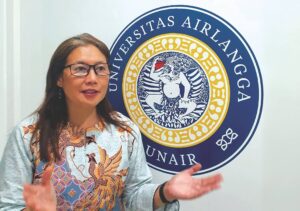
Growing up, Yuni Sari Amalia saw her father truly enjoy teaching in a community school. Despite the endless work and little pay, her father, who was also a government officer, seemed happy and content. After graduating with her bachelor’s degree, Yuni got an opportunity to teach at a language course. She was doubtful at first, but as soon as she stepped into the classroom, she knew that it was her calling.
“Suddenly I had something I’ve never felt before, like this fuzzy feeling, and then all the excitement of seeing all the students when they understood what I’m trying to say. Every day, I would be learning about them, and I would be learning about myself. And it’s just an incredible feeling.”
Twenty-three years later, Yuni is a lecturer at the Faculty of Humanities and the Deputy Head of the Strategic Planning and Development Board at Universitas Airlangga in Surabaya, Indonesia. She also holds a doctoral degree in Curriculum and Instruction from the University of Illinois. “The profession chose me,” she says.
“I just love my students so much because regardless of the hardship that they’re going through, their love for learning, their enthusiasm, and their passion for learning are actually really high. And it just sparked something in me,” she adds.
With decades of experience, Yuni understands that there are countless challenges she needs to face throughout her career. These challenges include limited resources and larger classes which impact teaching strategies.
“There are a lot of standardised things which could be very good in a way because you have all the standardised materials and quality learning outcomes. But at the same time, we shouldn’t forget the individual’s uniqueness of each student because they don’t start at the same point. They have their own needs, and this is an area that we need to pay more attention to. Strategic implementation should be data-driven, involve partnerships, and include regular monitoring to ensure effectiveness.”
Yuni also called for better policy and regulation to make education more inclusive, including for students with disabilities. “There is some support, but I feel that we really strongly need to improve this. Financial barriers can be addressed through scholarships and affordable loans, while inclusive education needs facilities and trained staff for students with disabilities. Bridging the gap between poverty and education requires universal early childhood education, community engagement, and supportive government policies.”
“To address professional development challenges, it is crucial to provide regular workshops, training, and clear career paths for educators, ensuring continuous learning and motivation. Enhancing access to resources through digital libraries and international collaborations is also vital. For equality and equity, promoting distance learning and establishing satellite campuses can mitigate geographical disparities.”
The views and opinions expressed in this article are solely those of the authors and do not reflect the official policy or position of ASEAN.




